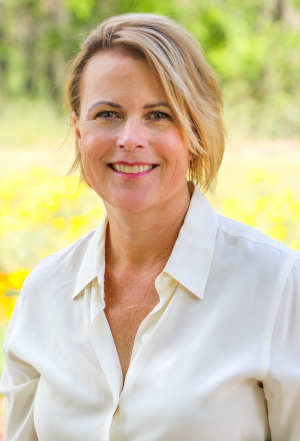- Elizabeth Larson
- Posted On
Supervisors vote to give themselves 40% raise
The raise amounts to an annual increase to the supervisors’ base salaries of more than $25,500, or an additional $2,100 a month.
The board had previously discussed the proposal in November and had voted to bring it back, at the latest, by Jan. 23.
However, it came before Christmas, on Dec. 20.
Earlier in the meeting, in a 3-2 vote, the board denied a request by the Behavioral Health Services Department to offer an advanced step request for a highly qualified senior substance abuse counselor candidate in a difficult-to-fill position, a matter raised during the board raise discussion. Human Resources staff raised questions about equity and process.
The ordinance that implements the supervisorial pay raise will require a second reading, expected to take place on Jan. 10, the board’s first meeting of 2023.
The ordinance the board approved ties supervisors’ raises to the salaries of Superior Court judges, a move that county staff favored instead of tying the raises to 60% of elected department head salaries as it was meant to “mitigate the appearance of a conflict of your Board approving raises for themselves,” according to County Administrative Officer Susan Parker’s written report in the November discussion.
However, county officials and board members have had to admit that they are still involved with setting their own salaries by taking action to set it in one way or another.
Going forward, board members will now get 38.6% of Superior Court judges salaries, which change on an annual basis — and sometimes more often due to salary adjustments — through a state calculation process.
The board’s packet contained a memo to the board with typos in the proposed amounts — stating that it would be 28%, not 38%, of Superior Court judges’ salaries as had been discussed in November — mistakes which were repeated in the draft ordinance.
Despite those errors, acknowledged by Parker, the board did not hold the matter over in order to give the public a chance to comment on the corrections made to the ordinance. A corrected version of the ordinance was later posted on the county’s website but Parker’s report was not updated and the typos remained in place afterward.
Changes to Superior Court judges’ salaries
When Parker first presented the proposal for that raise to the board at the start of November, she suggested giving the board 38.6% of the salaries of Superior Court judges, which as of July 1 totaled $229,125 annually.
The numbers she shared in November proposed a scenario that raised the annual pay for a supervisor from a base pay of $63,714 — with an additional $2,400 for the chair — to $88,483.20 annually, a 38.8%-percent increase from the current salary level, with the chair to receive an additional 5%, or $4,472.
However, since then, Superior Court judges have received a pay increase.
A Dec. 1 letter from the California Department of Human Resources, which the Judicial Council of California provided to Lake County News, stated that judicial salaries have been adjusted back to July 1 due to bargaining units receiving increases.
That adjustment raises the new annual salary for Superior Court judges by almost $2,000 dollars per year, from $229,125 to $231,174.
That means that the supervisors’ new salary will not be $88,483.20, as Parker had originally reported, but $89,233.16.
Moving from a base salary of $63,714 to $89,233.16 annually is a 40% jump for the supervisors.
The California Department of Human Resources told Lake County News that the calculation for Superior Court judges’ salaries is completed on a fiscal year basis and has not been finalized yet for 2023-24.
“Since the calculations are based on the average percentage salary increase for each fiscal year, we typically need to wait for collective bargaining to conclude to determine the applicable percentage for that fiscal year,” the agency said in a statement to Lake County News.
Supervisorial raises the latest result of class and comp study
The County Administrative Office presented the salary increase for the board in the context of its 2019 classification and compensation study.
In the fall of 2020 and 2021, in the midst of the pandemic, the board approved $21 million in raises based on that study, but had so far held off on raising its own member salaries.
The classification and compensation study showed that the Board of Supervisors’ salaries actually were 1.6% above the “base salary median” when compared to 12 other counties.
However, when asked by Lake County News about that on Dec. 20, administrative staff dismissed that comparison, saying it wasn’t “apples to apples” with other boards and that some of those other boards only showed up for meetings, unlike, they said, the Lake County Board of Supervisors.
The ordinance the board approved also states Lake County’s supervisors are now “full time.”
County staff said that they had held the matter over to make sure that funding was available.
Assistant County Administrative Officer Stephen Carter said the first payments of property tax had come through, and staff believed revenue was strong enough to support the raises.
The staff report explained, “The fiscal year 2022-23 currently has secured property taxes revenue budgeted to be $18,446,080 which means during the midyear budget staff will be requesting to increase the revenue projected by $342,170.23 that would cover the proposed increase of $165,847 for the BOS.”
Supervisor Bruno Sabatier said he was all for moving forward but he cautioned the board about the action.
He wanted to tie board salaries to 60% of elected department heads’ pay, which Parker said had been the formula before the county’s implementation of the classification and compensation study.
By the numbers, the difference between the two proposals for determining board salaries would have been minor. If using the 60% of elected department heads salary calculation, it would have amounted to a 37% raise, increasing board salaries to $87,573.60.
However, Sabatier believed that option would have insulated the board from criticism. He said he was concerned about what county staff would say when supervisors get raises at times when staffers don’t because of the more changeable judicial salary basis. He raised that issue in the context of the board talking a lot about staff morale.
Supervisor Jessica Pyska responded by saying the board had discussed the pay raise several times and neither way is perfect.
Michael Green, the board’s newest member, touched on public perception and said the county has stretched the limits of the classification and compensation study.
He pointed to the board’s action to deny Behavioral Health’s request to give Denise Newman a step five placement as a substance abuse counselor, because the lower step the county was offering was more than a dollar an hour less than she’s making. The request was turned down despite the fact that staff said she would be able to bill at a rate that would cover her pay.
Green had noted during the discussion about Newman’s proposed hire that he would take a hit to the integrity of the classification and compensation study due to the need for the position and her qualifications — which included more than 20 years of experience, which staff said was more than five times the minimum qualifications as outlined in the job description.
Human Resources Director Pam Samac told the board that county staff is planning to begin new discussions about classifications in January.
The board voted 3-2 to deny the step request — Moke Simon, Pyska and Sabatier voting yes, and Green and Board Chair EJ Crandell voting no.
During the board raise discussion, Green said being a supervisor is definitely a step up in responsibility and scope of work and tying it to the judges’ salaries makes sense, as he said the board is not going to get out of the controversy.
He would offer both motions needed to approve the action, including waiving the reading of the corrected ordinance and reading it in title only, which was approved 4-1, with Sabatier voting no, and advancing the corrected ordinance for the second reading at the Jan. 10 meeting, which the board approved 5-0.
County Counsel Anita Grant said the ordinance will not go into effect until 60 days after its anticipated second passage on Jan. 10, putting its implementation date at around March 10.
While most county ordinances go into effect 30 days after passage, certain ordinances — including those involving supervisorial pay — have a 60-day period after final passage before becoming effective.
That is, if they are not challenged by a referendum.
Before the ordinance goes into effect in March, county residents who oppose the raise could stop it by submitting qualified signatures totaling 10% of the entire votes cast in Lake County for all candidates in the last gubernatorial election, which was in November.
In Lake County, votes for governor in November totaled 20,131 votes, according to the final election results provided by the Lake County Registrar of Voters Office. That means, 2,013 verified signatures would be required for a referendum effort to succeed.
The last successful referendum in the unincorporated county was in 2014 in response to a marijuana cultivation ordinance passed by the board.
Email Elizabeth Larson at This email address is being protected from spambots. You need JavaScript enabled to view it.. Follow her on Twitter, @ERLarson, or Lake County News, @LakeCoNews.
















